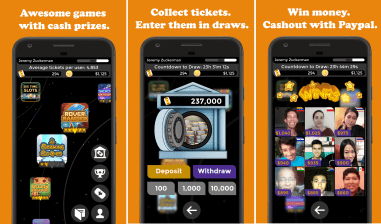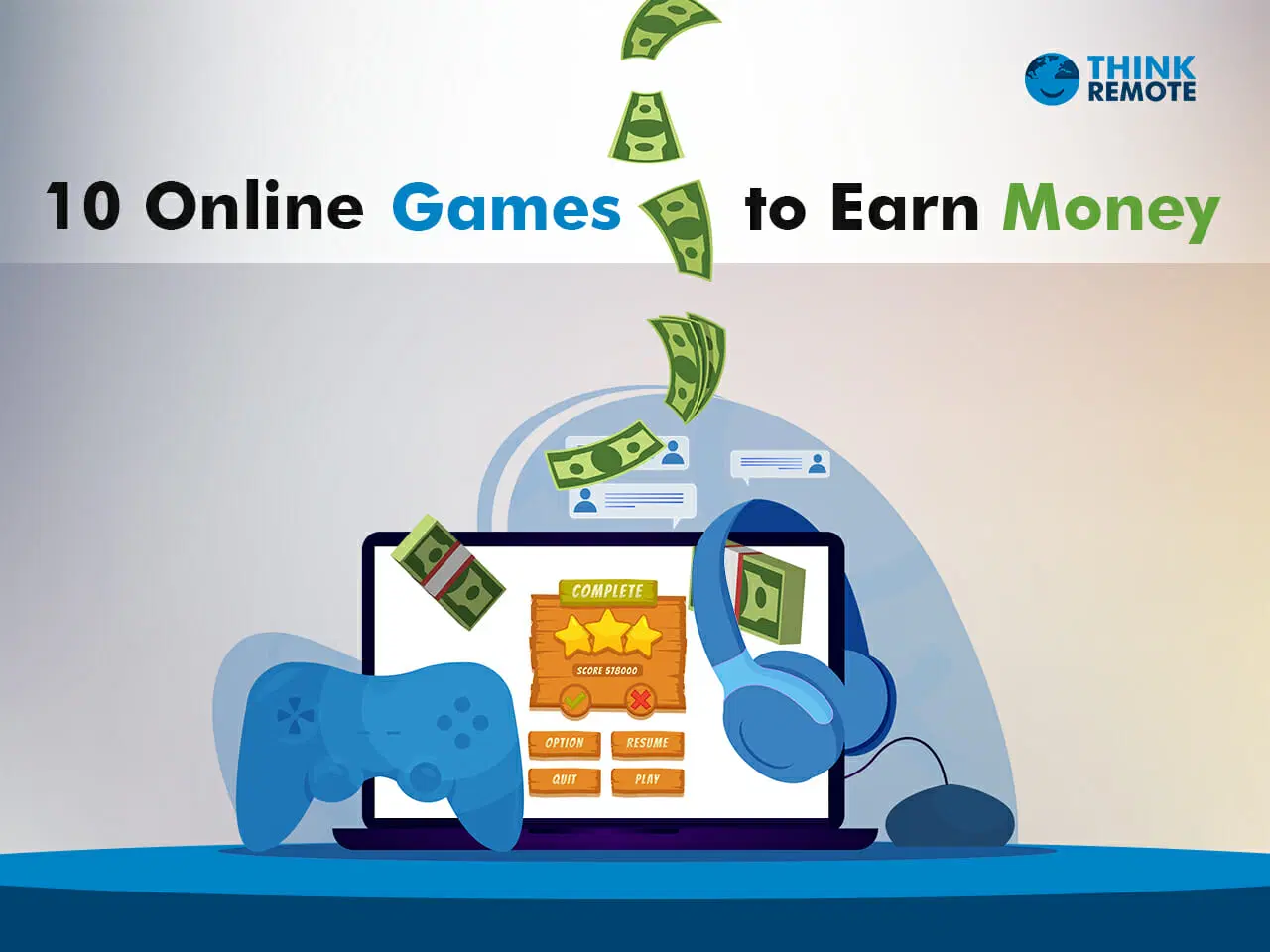How Play-to-Earn Games Are Changing the Pc Gaming Market

Comprehending Play-to-Earn Mechanics
The play-to-earn design has actually arised as an innovative principle within the gaming industry, essentially altering the connection in between players and the games they engage with. This version allows gamers to earn concrete incentives, typically in the kind of cryptocurrencies or non-fungible tokens (NFTs), via their in-game activities. Unlike standard gaming frameworks that typically generate income from via subscription charges or single acquisitions, play-to-earn video games incentivize gamer engagement by directly linking gameplay accomplishments to real-world value.
At the core of play-to-earn technicians is the combination of blockchain innovation, which makes sure openness and verifiable ownership of in-game assets. Players can acquire, market, or trade these properties in decentralized markets, equipping them with economic agency formerly undetected in traditional gaming environments. Each gamer's payment to the game community-- be it through skilled play, tactical trading, or community participation-- improves the overall pc gaming experience while supplying them a chance to produce income.
As gamers spend time and resources, they not only grow their involvement with the video game but additionally promote a dynamic economic situation that reflects their cumulative efforts (play and earn rewards). This makeover of gameplay right into a monetizable venture is improving both player inspiration and game design
Financial Influence on Players

In addition, play-to-earn designs democratize access to financial advantages. Players from differing socio-economic histories can take part and potentially gain considerable income, linking spaces that exist in conventional work markets. This standard shift cultivates monetary independence, particularly in areas where work chances may be limited.
In addition, the introduction of virtual economies permits players to build wide range with calculated investments in in-game properties, which can value in time. This has brought about the introduction of a brand-new course of gamers that approach play-to-earn as a severe income-generating activity, commonly bring about the reinvestment of revenues into the video gaming ecological community itself. Eventually, the financial effect on players is profound, as they browse a landscape where leisure and income merge.
The Duty of Blockchain Innovation
What makes blockchain technology a keystone of play-to-earn games is its ability to provide decentralization, transparency, and protection. By making use of a distributed journal system, blockchain makes certain that all deals within the game are taped in an immutable manner, allowing players to verify ownership of in-game possessions without counting on a main authority. This openness promotes depend on among gamers, as they can individually validate the scarcity and provenance of digital products, boosting their worth.
In addition, blockchain technology encourages players with decentralization, enabling them to participate in peer-to-peer transactions. Gamers are no much longer confined to in-game economies regulated by programmers; instead, they can trade, offer, or rent their assets freely in open markets. This change not only enhances the overall liquidity of digital possessions but additionally encourages more meaningful gamer involvement, as users can directly take advantage of their effort and time invested in the game.
In addition, blockchain helps with the development of play and earn rewards clever agreements, which automate various in-game processes, from incentives circulation to governance devices. play and earn rewards. This development lowers the danger of scams and guarantees reasonable play, more solidifying blockchain's indispensable role in the development of play-to-earn pc gaming
Challenges and Objections
Regularly, play-to-earn video games encounter substantial challenges and criticisms that can hinder their development and acceptance within the broader video gaming area. One main problem is the possibility for a speculative bubble, where the value of in-game possessions can rise and fall considerably, causing financial losses for players. This volatility undermines the security that conventional video gaming environments commonly provide.
In addition, the assimilation of blockchain innovation typically elevates concerns about ecological sustainability. The energy intake connected with specific blockchain networks has actually stimulated discussions relating to the eco-friendly effect of these games. Critics argue that the carbon impact created by play-to-earn platforms could discourage eco-conscious gamers.
In addition, there are problems regarding accessibility and inclusivity. Lots of play-to-earn games call for players to invest substantial ahead of time funding to obtain necessary possessions, producing obstacles for those with minimal funds. This design can unintentionally develop a divide between wealthier players and those who can not afford to participate.
Future Fads in Gaming
As the gaming industry proceeds to advance, numerous future patterns are emerging that guarantee to improve the landscape of play-to-earn video games and beyond. One considerable fad is the increasing integration of blockchain innovation, which enhances openness and security in transactions. This will likely bring about higher count on amongst players, encouraging larger adoption of play-to-earn versions.
In addition, the rise of non-fungible symbols (NFTs) is established to reinvent electronic possession, permitting gamers to truly have in-game possessions. This change will certainly not just encourage gamers but likewise develop brand-new financial possibilities within the virtual environment. The merging of video gaming with other fields, such as social media and decentralized finance (DeFi), is expected to promote cutting-edge gameplay mechanics and money making strategies.
Additionally, developments in expert system and artificial intelligence will certainly make it possible for much more personalized pc gaming experiences, dealing with individual player preferences and improving engagement. The expanding emphasis on community-driven advancement will likely affect video game style, as gamers significantly participate in shaping their pc gaming settings. Collectively, these trends suggest a transformative future for the pc gaming sector, where play-to-earn models will play a central duty in redefining gamer interaction and value development.
Verdict
Finally, play-to-earn games represent a considerable change in the pc gaming sector, fostering economic chances via innovative mechanics that take advantage of blockchain innovation. This version not just equalizes access to financial benefits for gamers from numerous socio-economic histories but also urges community interaction and empowerment. In spite of facing objections go to this site and challenges, the possibility for future improvements you could try these out recommends that play-to-earn games will continue to form the gaming landscape, providing brand-new avenues for wide range creation and player involvement.
The appearance of play-to-earn games represents a substantial shift in the video gaming industry, reshaping the partnership in between gamers and the electronic economy (play and earn rewards).The play-to-earn model has actually arised as a revolutionary principle within the video gaming market, fundamentally altering the connection between gamers and the video games they engage with. Unlike traditional pc gaming structures that commonly generate income from with subscription fees or single acquisitions, play-to-earn games incentivize gamer engagement by directly connecting gameplay accomplishments to real-world value
These innovative gaming systems empower players to generate real-world revenue via their in-game tasks, thus changing the typical notion of video gaming from a simple activity into a practical financial chance. Despite dealing with obstacles and objections, the capacity for future developments recommends that play-to-earn video games will proceed to form the gaming landscape, providing brand-new methods for riches creation and gamer involvement.